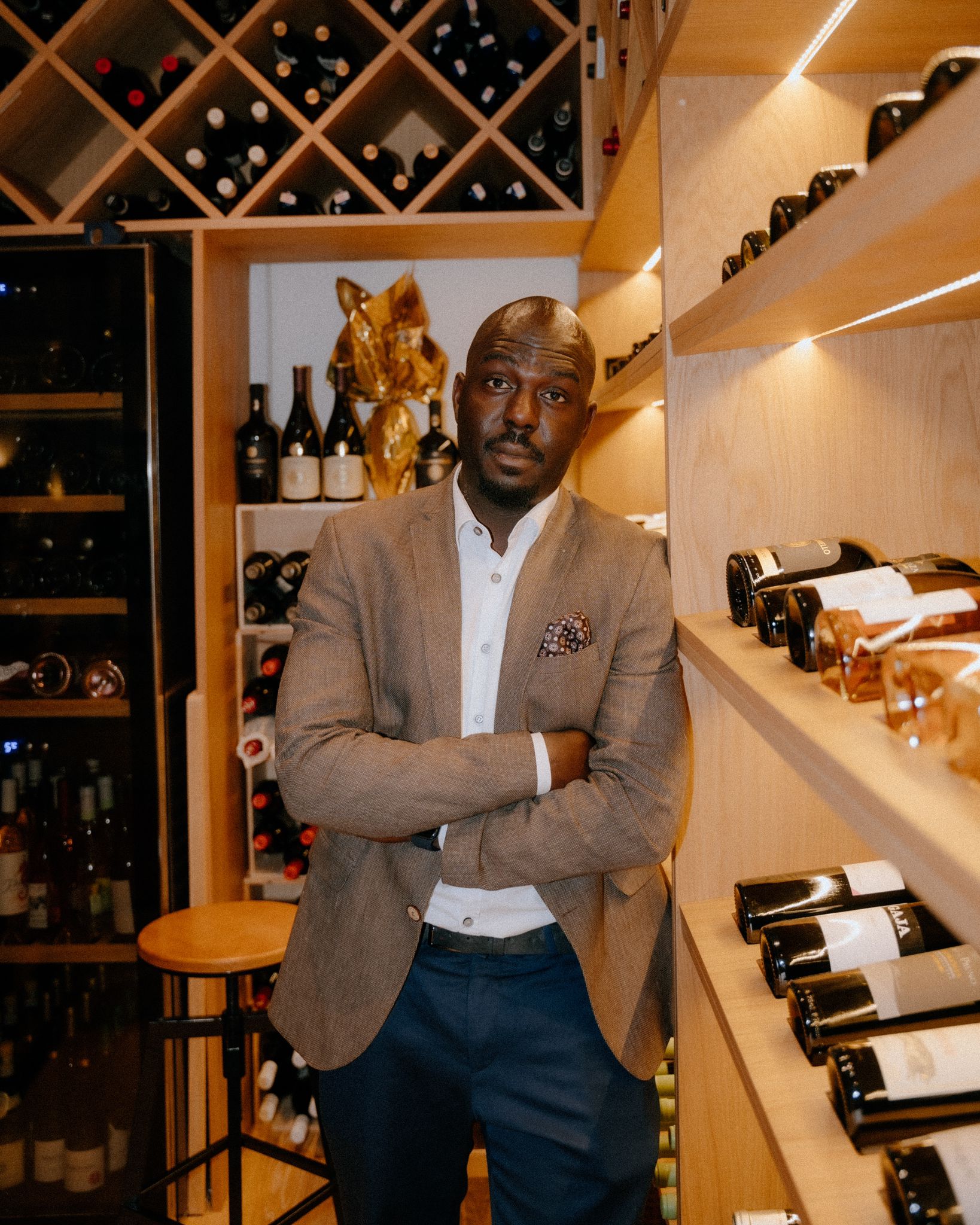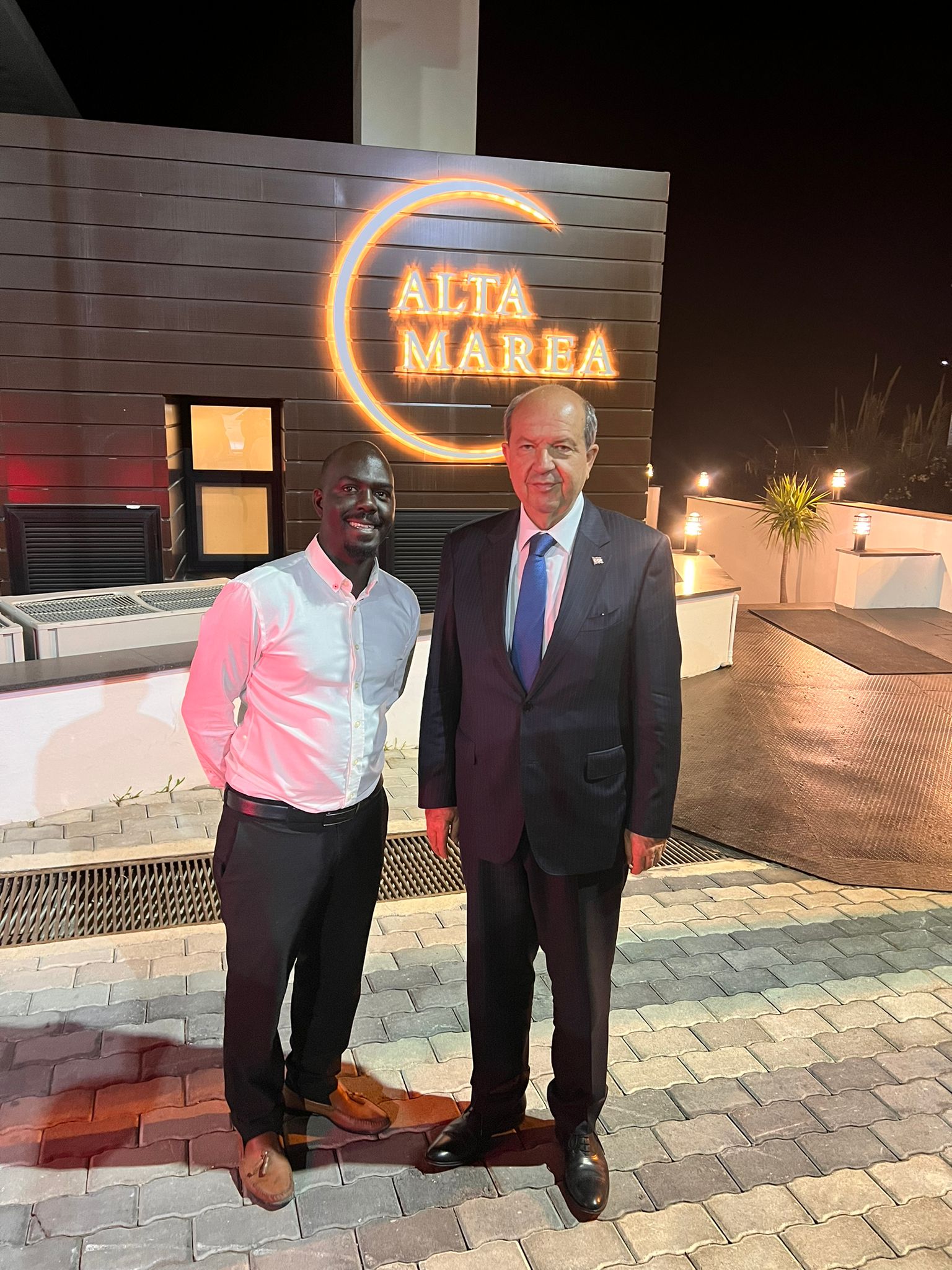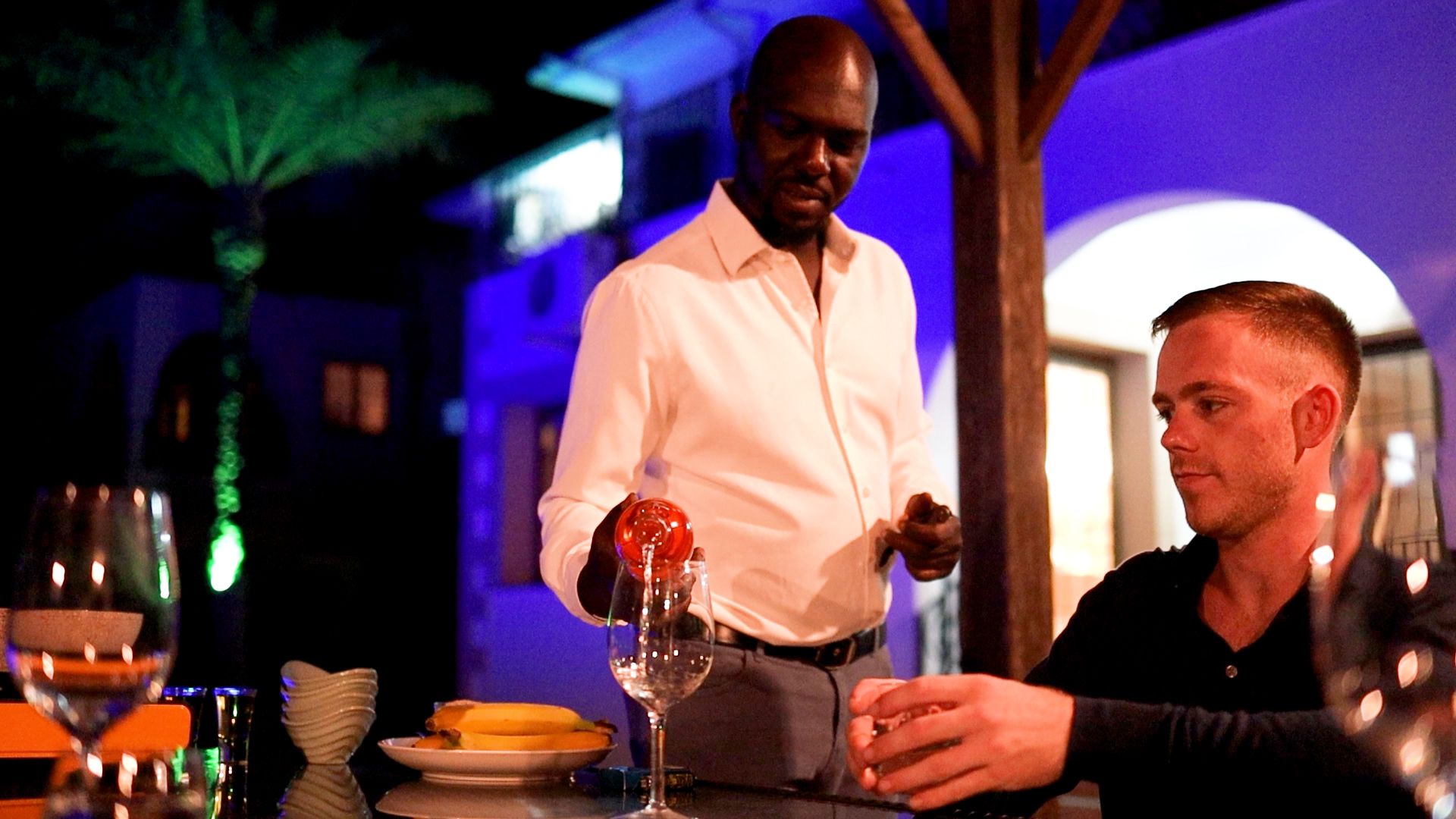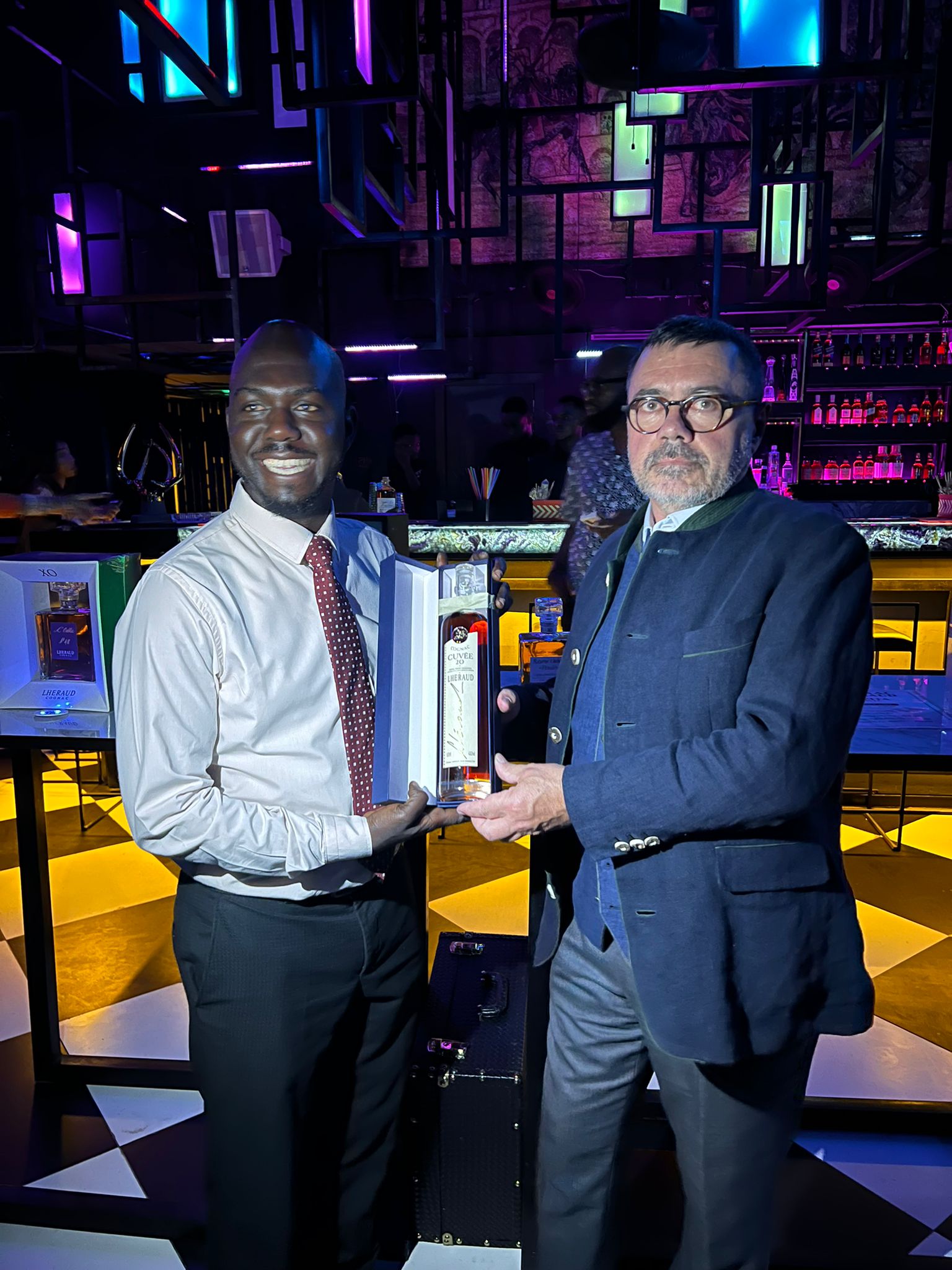
Embarking on his journey in the hospitality industry, Judah Neksibumi Habila found passion for wine nurtured by experiences that shaped his career trajectory. From humble beginnings to serving renowned personalities, each step contributed to his growth. At Brennan’s Restaurant in New Orleans, under the guidance of Braithe Tidwell, Judah delved deep into the world of wines, garnering accolades and awards. This journey led him to Cyprus, where he lent his expertise to prestigious establishments like Ercan Airport and Lords Palace Hotel and Casino. Alongside these ventures, Judah had the honor of serving distinguished clientele, including Leonardo DiCaprio, the members of One Republic, and Michelle Williams from Destiny’s Child. Moreover, his service extended to esteemed figures such as the President of Northern Cyprus, further enriching his professional portfolio. In February this year, he embraced a new role as the Assistant General Manager of Alta Marea, collaborating with Chef Emiliano Luggo to elevate the dining experience.
Judah speaks exclusively to Sunday Oyinloye, Publisher Green Savannah Diplomatic Cable
Excerpts:

You are a Sommelier and Restaurant Service Consultant, why did you decide to go into that line of career?
Initially, I didn’t choose this career path. When I arrived in Cyprus to study IT, I discovered I’d been scammed by my agent, leaving me without funds. Desperate for work, I landed a job as an assistant waiter, though I never received payment. However, it provided me with valuable experience. Moving from job to job in various hospitality establishments, I eventually found myself in a 5-star hotel where I quickly ascended the ranks. Wanting to excel and contribute value, I pursued my fascination with wines, culminating in a course with the Court of Master Sommeliers in America, which I passed. From there, my journey as a Sommelier began. With years of experience honed in prestigious establishments globally, coupled with continuous training, I found myself naturally assuming the role of a consultant in every workplace I entered. From launching restaurants and bars to meticulously training staff and crafting manuals, I excelled in these tasks effortlessly. However, the demands of a full-time role often outweighed the rewards. Despite numerous tempting offers from various establishments, I couldn’t commit to all. It dawned on me that I could offer my expertise to a multitude of clients as a consultant, thereby maximizing my impact within the industry.
We gathered that you have worked in reputable restaurants in Europe and America, would you like to share your experience?
Having devoted over 15 years to this industry, I can attest to its challenges. There were numerous tough moments, ones that could shatter even the strongest resolve. However, my perspective shifted drastically when I joined Brennans in New Orleans. It wasn’t just a workplace; it was a family that nurtured and supported us comprehensively. We were equipped with resources not only for professional success but also for personal growth. Learning financial prudence during lean times was particularly impactful. At Brennans, I flourished, earning upwards of $5000 monthly as a server and attending to luminaries like Leonardo DiCaprio and One Republic. Brennans even sponsored my journey to becoming a sommelier. While Turkey and Cyprus posed their own challenges, they served to fortify my resilience. Running an entire restaurant solo, catering to over 60 patrons, and curating perfect pairings and cocktails honed my skills. Through these varied experiences, I emerged stronger and more capable, shaping the professional I am today.

As a Wine Expert how can consumers identify fake wine?
- UV light: Old labels shouldn’t glow, but modern ones will under UV light, indicating potential forgery.
- Capsule and cork: Check for signs of reassembly on the capsule, such as folds, and examine the cork length and for ‘Ah-so’ marks, which could indicate tampering.
- Sediments: Properly stored older wines should have sediment that shifts when shaken. Lack of sediment movement may suggest fraudulent aging practices.
- Glue: Test the glue on antique bottles with UV light; modern glue reacting suggests potential forgery.
You have been involved in wine tasting activities in recent weeks, what does wine tasting entails and what is the benefit for Nigerians?
A wine tasting typically involves sampling various wines to evaluate their flavors, aromas, and overall characteristics. Participants observe the wine’s appearance, such as its color and clarity, before swirling it in the glass to release aromas. They then sniff the wine to identify different scents, followed by tasting small sips to assess the flavor profile, acidity, tannins, and finish. Discussions often revolve around the wine’s origin, grape variety, winemaking techniques, and food pairings. Overall, a wine tasting provides an opportunity to appreciate and analyze different wines in a structured and enjoyable manner. Participating in wine tastings presents Nigeria with multifaceted benefits. These events offer a window into global cultures and traditions, enriching the nation’s cultural landscape through exposure to diverse winemaking regions. Moreover, fostering a market for wine within Nigeria can stimulate economic growth by creating opportunities in importing, distributing, and selling wine, as well as promoting wine tourism. Additionally, wine tastings contribute to culinary refinement by encouraging exploration of food and wine pairings, potentially enhancing the hospitality and restaurant industry. Furthermore, hosting such events can bolster tourism by attracting visitors interested in experiencing Nigeria’s burgeoning wine culture, thus contributing to the nation’s overall development and global engagement.

Now that you are back in Nigeria what value do you intend to add to Sommelier and restaurant services?
Now that I’m back in Nigeria, my aim is to revolutionize the Sommelier and restaurant service landscape by infusing it with international standards and local flair. Drawing from my extensive experience working in reputable establishments worldwide, I plan to introduce innovative approaches to wine education, service excellence, and culinary experiences tailored to Nigerian tastes. Through consultancy services, training programs, and curated events, I aspire to elevate the overall dining experience in Nigeria, ensuring that establishments not only meet but exceed global standards of hospitality. My goal is to foster a culture of appreciation for wine and gastronomy while contributing to the growth and sophistication of the Nigerian hospitality industry.
What do you foresee as the future of wine business in Nigeria?
The future of the wine business in Nigeria holds immense potential for growth and innovation. As the Nigerian middle class continues to expand and develop a taste for luxury and fine dining experiences, there will be a rising demand for high-quality wines and sophisticated wine culture. With the increasing globalization of tastes and preferences, Nigerian consumers will seek diverse wine options from around the world, creating opportunities for importers, distributors, and retailers to expand their offerings. Furthermore, the emergence of a new generation of wine enthusiasts and professionals will drive innovation and creativity within the industry. We can anticipate the establishment of more wine bars, tasting rooms, and educational institutions focused on wine appreciation and sommelier training. Overall, the future of the wine business in Nigeria is promising, characterized by growth, diversity, and a burgeoning wine culture.
Are you satisfied with the services of some of the restaurants you have visited since you returned to the country?
While I’ve noticed some restaurants making commendable efforts and striving to provide quality service, I must admit there’s room for improvement. The truth is, few establishments prioritize investing in staff education and training. While I appreciate the efforts of certain places, overall satisfaction remains elusive. This issue isn’t exclusive to Nigeria; hospitality institutions worldwide often neglect staff development, preferring employees to invest their own resources in training. It’s time to shift this mindset and recognize the value of investing in staff growth and expertise.
Would you like to share your encounter with the President of the Turkish Republic of Northern Cyprus?
As I went about my usual duties in the restaurant that evening, little did I know that an unexpected encounter awaited me. With no reservation under the president’s name, it was a regular guest who hinted at additional guests joining his party later. Imagine my surprise when those guests turned out to be none other than the president himself. Welcoming him with a smile, I escorted him to his table promptly, only to discover a remarkably humble and gracious individual. Inquiring about his preferences after a long day, I recommended a fine Italian wine to complement his meal, which he readily accepted, showing keen interest in the selection. Throughout the evening, I ensured his glass remained topped up and his experience enjoyable. Upon his departure, he graciously thanked me, engaging in a brief conversation about my background before departing with his entourage. The offer of a photograph was met with eager enthusiasm, capturing the essence of an unforgettable evening.
What advice do you have for Restaurant operators and those trading in wine in Nigeria?
For those involved in wine trading and restaurant operations in Nigeria, my advice is simple yet impactful: prioritize investing in your team. By dedicating resources to training and developing your staff, you’ll not only enhance the quality of service but also increase profitability. Recognize that well-trained employees are instrumental in providing exceptional customer experiences, ultimately driving revenue growth and fostering long-term success.









